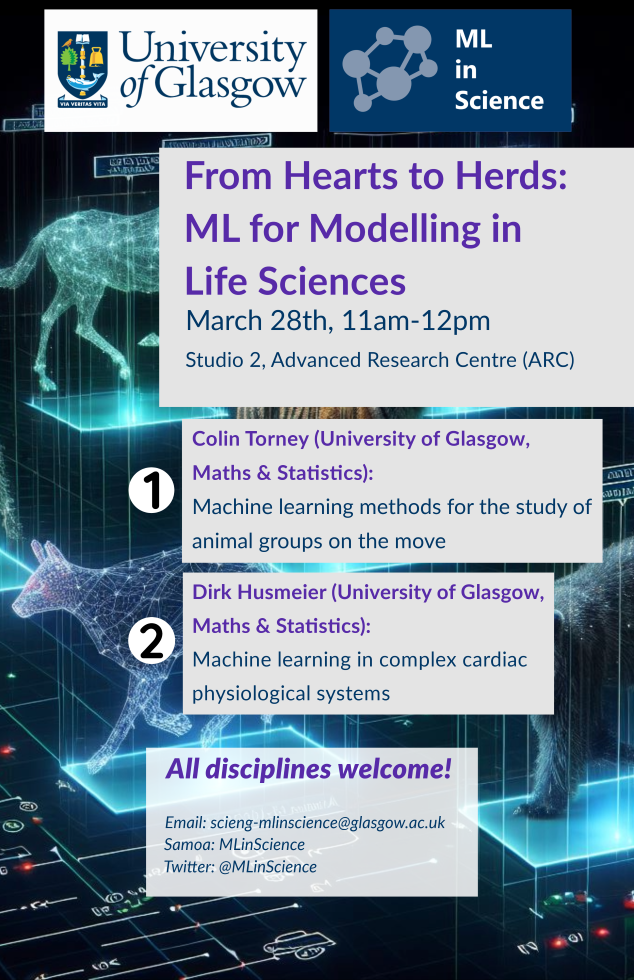Machine learning methods for the study of animal groups on the move
Colin Torney
University of Glasgow | School of Mathematics and Statistics | TwitterRecent advances in technology and quantitative methods have led to a growth in our ability to study mobile animal groups in their natural environments. Understanding the movement patterns of these groups requires the study of individual behaviour and the interactions between leadership, imitation, and environmental drivers that influence movement decisions. In this talk I will discuss the methods we're using to investigate these questions, including tools to collect movement and behavioural data from migratory species, and machine learning techniques to infer behavioural rules from movement data for both individuals and social groups.
Machine learning in complex cardiac physiological systems
Dirk Husmeier
University of Glasgow | School of Mathematics and Statistics | WebsiteThere have recently been impressive developments in the mathematical modelling of cardiac physiological and pathophysiological processes. This allows us to gain, in principle, deeper insight into the state of a variety of cardiovascular diseases. However, the calibration process for patient-specific diagnosis is challenging due to the high computational costs of the numerical solutions, which have to be carried out repeatedly as part of an iterative optimization or sampling process. In my talk, I will give an overview of recent machine learning methods that we have applied to tackle this problem, including Gaussian process emulators, graph neural networks and (if time permits) physics-informed neural networks.


